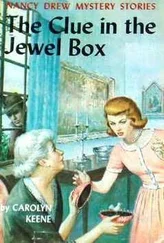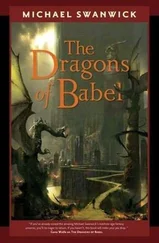Carolyn Parkhurst - The Dogs of Babel
Здесь есть возможность читать онлайн «Carolyn Parkhurst - The Dogs of Babel» весь текст электронной книги совершенно бесплатно (целиком полную версию без сокращений). В некоторых случаях можно слушать аудио, скачать через торрент в формате fb2 и присутствует краткое содержание. Город: New York, Год выпуска: 2003, ISBN: 2003, Издательство: Little, Brown and Company, Жанр: Детектив, на английском языке. Описание произведения, (предисловие) а так же отзывы посетителей доступны на портале библиотеки ЛибКат.
- Название:The Dogs of Babel
- Автор:
- Издательство:Little, Brown and Company
- Жанр:
- Год:2003
- Город:New York
- ISBN:978-0-7595-2806-2
- Рейтинг книги:3 / 5. Голосов: 1
-
Избранное:Добавить в избранное
- Отзывы:
-
Ваша оценка:
- 60
- 1
- 2
- 3
- 4
- 5
The Dogs of Babel: краткое содержание, описание и аннотация
Предлагаем к чтению аннотацию, описание, краткое содержание или предисловие (зависит от того, что написал сам автор книги «The Dogs of Babel»). Если вы не нашли необходимую информацию о книге — напишите в комментариях, мы постараемся отыскать её.
The Dogs of Babel — читать онлайн бесплатно полную книгу (весь текст) целиком
Ниже представлен текст книги, разбитый по страницам. Система сохранения места последней прочитанной страницы, позволяет с удобством читать онлайн бесплатно книгу «The Dogs of Babel», без необходимости каждый раз заново искать на чём Вы остановились. Поставьте закладку, и сможете в любой момент перейти на страницу, на которой закончили чтение.
Интервал:
Закладка:
Continuing my preliminary tests of Lorelei’s intelligence, I get a dog treat, show it to her, then hide it underneath a cup. She noses the cup, overturns it, and retrieves the treat in six seconds, by my stopwatch. This is very good; it demonstrates impressive problem-solving ability. Next, I test her memory by making a show of hiding a treat in a corner while she watches, then taking her into another room for five minutes. When we return to the living room, she goes right for it. I’m very pleased.
Something odd happens during the third test. The test consists of covering the dog’s head with a towel and timing how long it takes her to shake it off. It’s another problem-solving task, and I’m expecting Lorelei to pass with flying colors. But when I put the towel over her head, she merely stands there, her head slightly bowed under the weight. I wait a full minute, then a minute and fifteen seconds. She makes no move to get out from underneath, and the hunched shape of her body, the thick green cloth covering her face as thoroughly as a widow’s veil, seems to me suddenly very sad. I’m about to remove the towel myself when the phone rings. I turn to pick it up, and by the time I’ve turned back—it’s a wrong number, and the call lasts no more than five or ten seconds—Lorelei has shaken off the towel and is sitting up, watching me. It occurs to me that maybe the reason she didn’t try to free herself while I was watching is that she wasn’t sure what it was I expected from her. Perhaps she thought I wanted her to stand quietly with a towel over her head. This was the strangest of all the strange games I’d spent the day playing with her, and for once, she couldn’t figure out the rules.
Suddenly I feel tired; I think we’ve both had enough. I kneel down and put my arms around the dog. “Come on, girl,” I say. “Let’s go for a walk.”
FOUR
Afriend of mine from college used to live on the nineteenth floor of a high-rise in New York City. His next-door neighbors when he moved in were a youngish couple with a dog. I remember sitting on his balcony, drinking with him into the night, and seeing the woman of this couple come out onto her balcony, right next door, with the dog, a little pug. They had covered the sides of the balcony with chicken wire so that the dog could sit out there safely, without danger of slipping through the bars.
After my friend had lived there for a year or so, the man next door climbed onto the railing of the balcony and jumped. My friend was in bed when it happened—it was about one A.M.—and he heard a short piercing scream and then nothing more. It wasn’t until the next day, when he was playing loud music and one of the family members who had gathered next door to grieve came by to ask him to turn it down, that he learned what sound he had heard.
I was in town a month or so later, and I stayed on his couch—this was during the young part of my life when I was happy to have someone else’s couch to sleep on. As we sat drinking on the balcony, we couldn’t stop talking about it. It haunted us, and every conversation seemed to lead back to it. Toward the end of the night, when we’d drunk quite a lot and had moved very quickly through the stages of grief for this man we hadn’t known, we began to joke about it. We looked down from the balcony and tried to imagine the trajectory the man’s body would have taken as it fell. We speculated about where exactly he might have landed—there was a building whose roof lay directly below us, ten stories or so down, but we thought that perhaps the wind might have blown his falling body out over the sidewalk—and it was only as dawn began to break that we realized we were talking quite loudly and that the young widow was sleeping next door. I never found out whether she heard us that night—I suspect not, because when she moved out a month later, she made a special point of thanking my friend for his kindness during that terrible time—but the very possibility of it still fills me with horror. If I were to meet this woman again (and I don’t even know that I’d recognize her all these years later), I would fall to my knees and beg her forgiveness; I would tell her that I only now understand that what I did to her, whether she knew I did it or not, is the unkindest thing I have ever done in my life.
I was thirty-nine when I met Lexy. Before that, I was married for many years to a woman whose voice filled our house like a thick mortar, sealing every crack and corner. Maura, this first wife of mine, spoke so much while saying so little that I sometimes felt as if I were drowning in the heavy paste of her words. The most ordinary details of our lives had to be broken down and processed; in every conversation, I had to choose my words carefully, because I knew that any of them, innocuous though they seemed to me, might mire me in a nightlong conversation about my motives in uttering them. It seemed to me that Maura was anxious all the time, nervous she might not be doing it all right, and the only way she could keep control of the pieces of her life was to analyze them until there was no life left in them at all. Sometimes, in the car, we’d be driving in silence, and I’d glance over at her when her face was, for a rare moment, unguarded. “What are you worrying about right this second?” I’d ask. And she always had an answer.
Toward the end, after I’d begun to refuse to participate with her in these dialogues, she began leaving me notes. Just normal things at first—“Please pick up some milk” or “Don’t forget dinner at Mike and Jane’s tonight”—but as time went on, they became more and more complex and increasingly hostile.
Our marriage ended late one night when I came home to find a note that said, “I’ve asked you several times to do me the favor of putting your breakfast dishes in the dishwasher before you leave for work in the morning, and yet I’ve come home once again to find your coffee mug sitting on the table. I guess I’ve been wrong in assuming that I can expect you, as my husband, to listen to me when I voice my needs, and to honor my wishes with sensitivity and respect. We need to talk about this as soon as possible.” The last four words were underlined twice.
I picked up a pen—this was not my finest moment, I’ll admit—and wrote “Fuck you. I’m sick of your fucking notes” across the bottom of the paper. I stuck it on the refrigerator for her to find in the morning. We left each other the next day, but not until she’d tried to engage me in one last conversation. I walked out without saying a word.
I met Lexy less than a year later, and I knew from our first conversation that when she talked it was an easy thing, plain and open, with none of the byzantine turns and traps I found myself caught in when I talked to Maura.
We met because she was having a yard sale, and I happened to follow her handmade signs from the main road. Going to yard sales was something I had taken to doing after my divorce. I liked the treasure hunt of driving through neighborhoods I’d never visited before, and I liked investigating the small mysteries of the lives of the people I met—how had they come to acquire this particular combination of things (shower radios and ornate liquor decanters, hand-crocheted baby sweaters and limited edition Super Bowl Coke cans long since emptied of their contents), and what had happened along the way to make them decide these items no longer had a place in their home? I found a strange, childlike excitement in the promise that I might discover something I had been looking for for years without even knowing it, and it reassured me, humbled me somehow, to see that other people’s lives, too, could be broken down into pieces and spread out on the lawn for anyone to examine.
Читать дальшеИнтервал:
Закладка:
Похожие книги на «The Dogs of Babel»
Представляем Вашему вниманию похожие книги на «The Dogs of Babel» списком для выбора. Мы отобрали схожую по названию и смыслу литературу в надежде предоставить читателям больше вариантов отыскать новые, интересные, ещё непрочитанные произведения.
Обсуждение, отзывы о книге «The Dogs of Babel» и просто собственные мнения читателей. Оставьте ваши комментарии, напишите, что Вы думаете о произведении, его смысле или главных героях. Укажите что конкретно понравилось, а что нет, и почему Вы так считаете.












